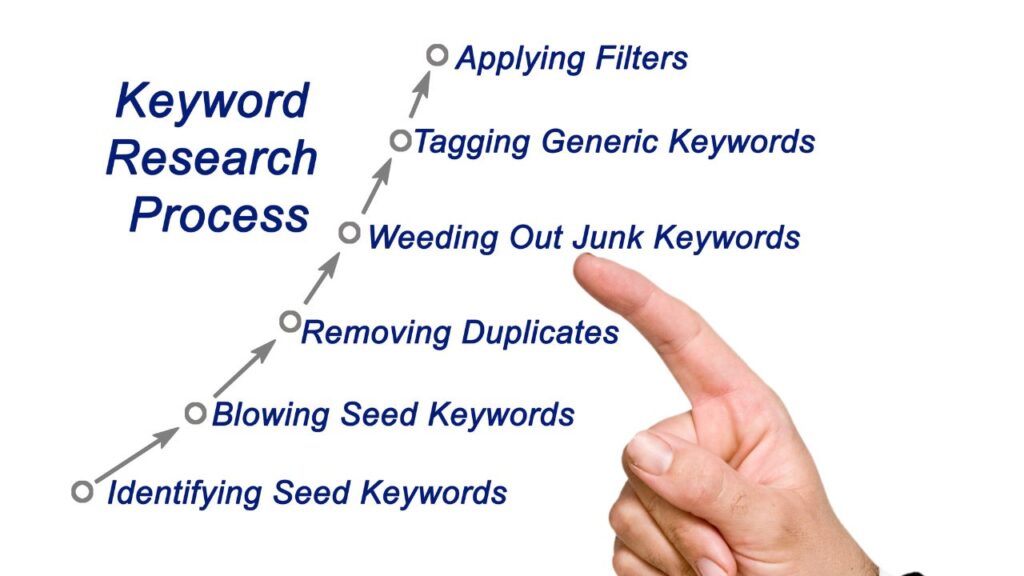Local SEO or you can say in your words “Local search visibility” is a cornerstone of a successful digital marketing strategy for small businesses, helping them compete with national chains that rely solely on their brand to drive customers to their websites.
Start using Google Keyword Planner to research local keywords related to your business and then create content to rank higher in search results.
Conduct A Keyword Research For Local SEO

Local search optimization (LSO) is an integral part of digital marketing strategy. LSO blends traditional SEO best practices with location-specific elements, like Google Business profiles, citations and reviews. To conduct LSO effectively, keywords with local intent must first be identified before optimising websites accordingly – something which you can accomplish either through performing searches in incognito mode and inspecting results or with tools like Semrush.
Another way of improving local rankings is to create content relevant to your target area, such as articles, blogs or videos that contain a link back to your website – this will drive traffic while simultaneously showing that your business exists where intended.
Utilising local keywords in your content can help your website rank higher on Google’s local search results pages, but to maximise effectiveness it is key that they have both high search volume and low competition. Utilise Google Keyword Overview’s Location-level feature for additional insight on keyword usage including local volume and competition data.
Your local SEO can also be enhanced by creating a Google Business profile and gathering citations from trusted sources, as well as soliciting reviews from your customers – just remember to comply with any review platforms’ rules when doing this, since some, like Yelp, forbid businesses from asking customers for reviews!
Do On-page Optimization For Local SEO
Local SEO involves optimizing a website’s on-page elements to address local search queries, with additional work required than regular SEO but it can produce higher-quality pages that are both user and search engine friendly. Aside from targeting relevant local keywords, on-page optimization includes claiming and updating all listings associated with your business online – eliminating duplicate listings while providing accurate information for each listing.
A strong local SEO strategy must include an in-depth on-page optimization plan that covers title tags, meta descriptions and headers. Title tags are especially important because search engines will first see them when indexing a webpage; meta descriptions also play a vital role as they provide an accurate summary of a web page’s content.
Local SEO requires building high-quality backlinks in the correct manner to increase rankings in both local pack and snack pack results, so building them correctly is vital to local SEO success. A competitor analysis tool is a useful way to find pages linking back to competitors; when this is complete, politely reach out and request their link as this could increase local link building significantly. Another great way of building local links is creating content about your area that encourages local websites or social media users to share it – as is getting reviews on Google My Business (GMB) or consumer directories such as these will increase visibility while increasing chances of making it into 3-pack results.
Engage In Local Citations
Local citations are online mentions of your business name, address, and phone number (NAP) that appear in platforms like business directories or social media websites. Citations play a key role in Google’s local SEO algorithm – Google will rank your business higher if its search algorithms see consistent NAP information coming from multiple reliable sources. Consistency also demonstrates to consumers that your organization can be trusted as it establishes credibility for consumers to do business with you.
When building local citations, you must choose only trustworthy sources – this includes business directories, review websites and blogs. Furthermore, it would be prudent to utilize websites related to your industry or location (i.e. restaurants may want to prioritize Yelp or Zomato reviews while pet stores would ideally prefer animal-oriented websites) and avoid engaging in dubious practices such as posting low-quality citations – this can damage rankings significantly.
One effective strategy to boost local citations is encouraging customers to write reviews. This will boost your visibility on Google Maps and bring in new customers; but keep in mind that not all reviews will be positive; even with everything done right, sometimes negative feedback may still come through; in such instances, it is vitally important that responses to them be handled professionally and politely to demonstrate you as a reputable company and encourage potential buyers.
Utilize Social Media
Local SEO is a highly effective strategy for brick-and-mortar businesses to increase their online visibility. It enables them to stand out against competitors who target broad keywords with brand recognition alone driving traffic; local strategies also tend to be more relevant to users in specific locations, increasing the chances of them visiting a storefront.
Social media plays an integral part in local SEO, helping businesses establish brand recognition and establish themselves as reliable members of their community. Businesses can do this by posting informative and valuable content on their social media pages that attracts backlinks from other websites – ultimately leading to higher rankings in local searches, leading to more traffic and sales for your website.
Businesses must ensure that they optimize their Google Business Profiles, ensure consistent NAP citations and encourage reviews on Facebook and other platforms like Moz Local to maximize visibility for their business and get as many accurate listings as possible associated with them. Moz Local provides businesses with tools for this process by finding all listings associated with them; identifying duplicate listings; updating accuracy; and responding to reviews both positive and negative – allowing businesses to monitor them closely before responding accordingly.
An effective local strategy is an integral component of any small business’s success and an ideal way to compete against larger national firms that often overlook or ignore local SEO efforts. By creating an SEO to-do list tailored towards their ideal customers’ needs, a small business can make themselves known in their industry and become their go-to brand.













